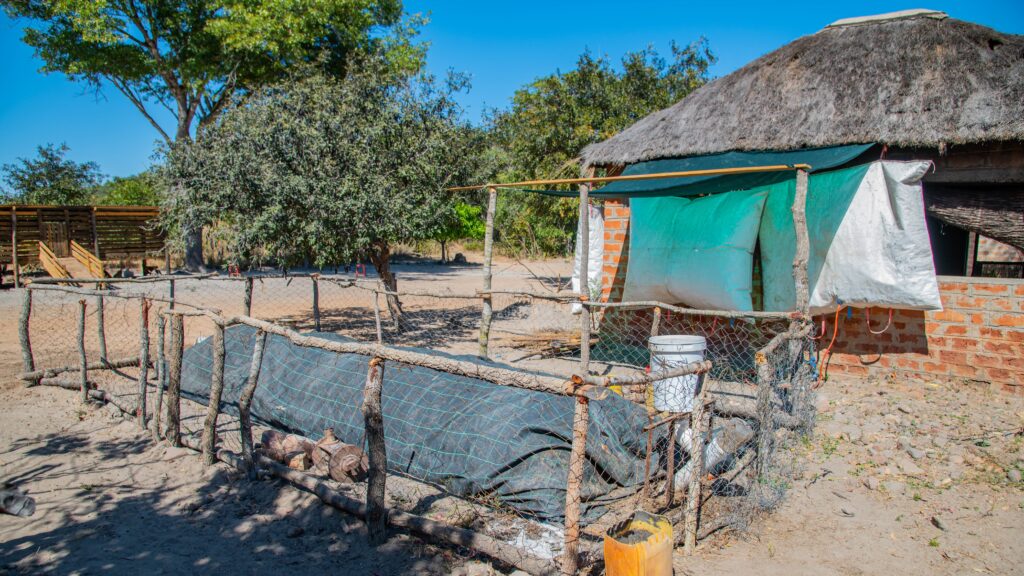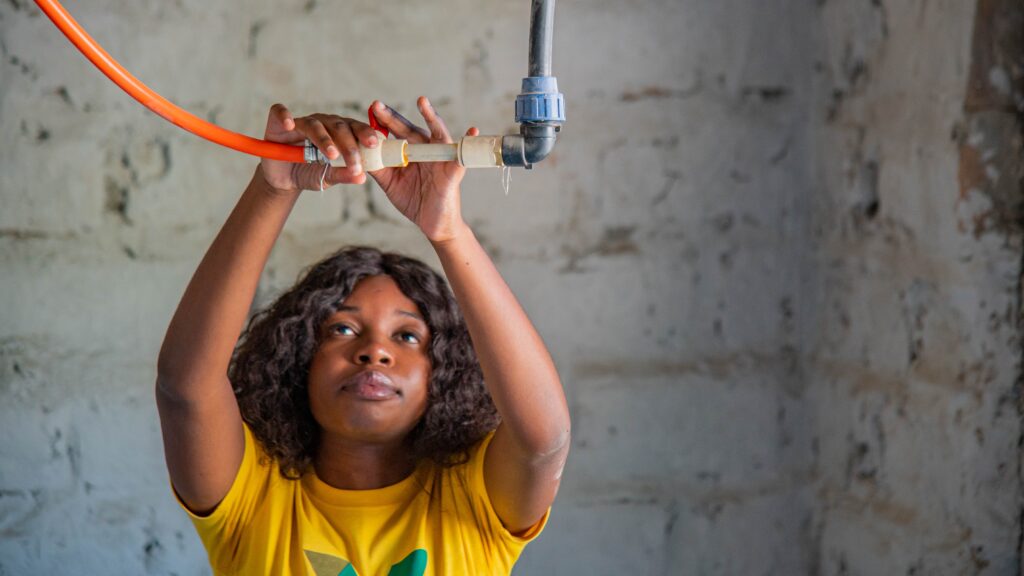Jane Nakasamu: Empowering Zambia’s Clean Cooking Advocates
 Jane Nakasamu is the Chief Executive Officer at Greenbelt Energy Limited, a company dedicated to providing clean cooking solutions and organic fertilizer to low-income communities in Zambia. Inspired through her work to empower youth in the clean energy space, Jane conducts trainings for young people on biogas and off-grid solar systems.
Jane Nakasamu is the Chief Executive Officer at Greenbelt Energy Limited, a company dedicated to providing clean cooking solutions and organic fertilizer to low-income communities in Zambia. Inspired through her work to empower youth in the clean energy space, Jane conducts trainings for young people on biogas and off-grid solar systems.
In a conversation with Nakasamu, the Clean Cooking Alliance (CCA) learned about her passion for connecting households to clean-burning biogas, her motivation to empower the future agents of change, and the importance of advocacy.
This story is part of a series featuring youth leaders from across the clean cooking sector.
CCA: Tell us about your current work and professional goals.
Nakasamu: I am currently the Chief Executive Officer at Greenbelt Energy Limited, one of Zambia’s fastest growing renewable energy startups. I am also a Consultant in Training and Research at Kafue Gorge Regional Training Centre working to train energy professionals in Africa. My goal is to promote access to renewable energy in Zambia by empowering youth.
CCA: What key achievements are you most proud of?
Nakasamu: Through Greenbelt Energy, I have been able to distribute clean cookstoves to over 100 households, set up 3 biogas systems in rural communities, and develop a smart biogas stove. I have also been able to train over 300 young people in renewable energy.

CCA: What motivates and inspires you to engage in the clean cooking and clean energy sector?
Nakasamu: It’s very empowering to give people the ability to create their own energy for their homes and communities. By helping set up biogas systems in houses that don’t otherwise have a clean energy source to cook with, I know their health will improve, their cooking experience will be easier, and it won’t harm the environment.
CCA: How does your current work relate to empowering young people, amplifying youth voices and engaging youth in advocacy?
Nakasamu: I am currently working on a project at Kafue Gorge Regional Training Centre to train 350 young people in off-grid solar systems to be able to quickly respond amidst an energy crisis. By building energy systems, this project is empowering young people to be the answer to the challenges being faced in the country.
CCA: What is one pivotal lesson that shaped your path and empowered you on your professional journey?
Nakasamu: I learned that young peoples’ innovations can change the lives of those around them. I have been empowered by seeing the impact of the biogas systems I have installed and by knowing that I have helped improve peoples’ lives.
CCA: What barriers do youth face in meaningfully engaging in clean cooking and clean energy? In which spaces do youth need more representation?
Nakasamu: The clean cooking space is challenging because not enough funding goes toward it. Young innovators need grants and capital that’s readily available for them to develop their projects and innovations on clean cooking and clean energy more broadly.
Youth also need more representation on the policy side, especially in decisions concerning the allocation of funds to support the industry. More budgets should address access to clean cooking. The same way governments invest in grid expansion to enable people to access electricity, governments also need to invest in clean cooking solutions and especially in research and development. We need young people in key decision-making roles to ensure that investments and funds are being directed towards the clean cooking space.

CCA: What needs to be done to better understand young people’s needs, challenges, and aspirations in clean cooking?
Nakasamu: We need more engagement with young people from different parts of the world. We also need regular data collection from the young people to understand their present needs, because needs change frequently. This way, youth can be best supported.
CCA: How do you envision the role of youth in shaping the future of the clean cooking sector in the next decade?
Nakasamu: Young people are change-agents that will create a positive culture in the clean cooking space. They can shape an important role in spreading important messaging about clean cooking that will reach the masses and encourage people to shift to clean cooking solutions. Young people have already taken such a strong stand in pushing forward innovative solutions — I see them producing more innovations that effectively respond to pressing needs.
CCA: What three pieces of advice would you offer to young individuals, especially young women, aiming to initiate change in the clean cooking sector and beyond?
Nakasamu: 1. Be brave; 2. Be bold; 3. Believe.
